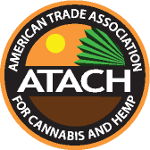1. Introductory Summary
Following the 2018 Farm Bill, Massachusetts integrated hemp intoxicants, including synthetic cannabinoids like Delta-8 and Delta-10 THC, into its existing cannabis regulatory program. This integration places synthetic and hemp-derived intoxicants under the oversight of the Cannabis Control Commission (CCC), requiring compliance with comprehensive licensing, potency, and safety standards equivalent to those for traditional cannabis products. This approach is intended to mitigate health risks while enhancing consumer protection.
2. Regulation of Synthetic THC Products
Massachusetts regulates synthetic cannabinoids, including Delta-8 and Delta-10 THC, within its cannabis framework. Only licensed cannabis dispensaries may legally sell these products, which are treated as controlled substances under state law. Production, sale, or distribution outside the licensed cannabis market is prohibited, ensuring that synthetic THC products meet consistent quality and safety standards.
3. THC Potency Limits per Serving or Package
Massachusetts enforces strict potency limits on all THC products, including hemp intoxicants:
- Edibles: Limited to 5 mg THC per serving, with a maximum of 100 mg THC per package.
- Other Products: Additional potency restrictions apply to concentrates and tinctures to ensure safe levels for consumers.
4. Public Health Measures
Massachusetts has implemented several public health measures for hemp intoxicants:
- Age Restrictions: A minimum purchase and use age of 21.
- Packaging and Labeling: Child-resistant packaging is required, along with labels indicating THC content, serving sizes, health warnings, and usage guidelines.
- Advertising Restrictions: Marketing must not target minors or use imagery that could appeal to children.
- Product Safety Testing: All products must be tested for potency, contaminants, and purity to ensure consistency and safety.
5. License Requirements and Fees
The CCC requires licenses for all entities involved in the production, processing, and sale of synthetic THC products. The licensing process includes comprehensive requirements such as business plans, security protocols, background checks, and financial disclosures. License types include cultivation, manufacturing, retail, and testing, with fees varying by license type. Renewal fees and compliance standards apply, ensuring that licensed entities adhere to CCC regulations for safe production.
6. Testing Standards
Massachusetts mandates rigorous testing for all synthetic THC products. Licensed laboratories assess products for THC potency, contaminants (such as pesticides, heavy metals, and solvents), and overall product safety.
7. Advertising and Marketing Restrictions
Massachusetts enforces stringent advertising rules, similar to its controls on cannabis products. These restrictions prohibit misleading claims, particularly about safety or legality, and prevent marketing that might appeal to minors. Advertising cannot be conducted on platforms with significant underage audiences, ensuring alignment with public health priorities.
8. Retail Location and Zoning Restrictions
Retail locations for hemp intoxicants must comply with state and local zoning regulations similar to those governing cannabis dispensaries. Products containing synthetic cannabinoids are sold exclusively through licensed dispensaries, which are subject to minimum distance requirements from schools and other sensitive areas, limiting exposure to minors and supporting regulated access.
9. Age Restrictions for Purchase and Use
Massachusetts enforces a minimum age of 21 for the purchase and use of all hemp intoxicants, aligning with the age restrictions applied to cannabis.
10. Penalties for Non-Compliance
The CCC imposes strict penalties for non-compliance, including fines, license suspensions, product recalls, and possible license revocation. Unlicensed production, inadequate testing, improper labeling, and unauthorized distribution of synthetic THC products are subject to enforcement actions, ensuring adherence to the state’s safety standards.
11. Social Equity Considerations
Massachusetts includes social equity provisions within its cannabis framework, extending to the licensing of hemp intoxicants. The CCC provides resources, reduced fees, and expedited processing for applicants from communities disproportionately impacted by past cannabis laws, supporting equitable opportunities within the regulated market.
12. Impact on Medical and Adult-Use Cannabis Programs
By integrating hemp intoxicants within the cannabis regulatory framework, Massachusetts aligns safety, potency, and testing standards across THC products. This unified approach supports regulatory consistency across medical, adult-use, and synthetic cannabinoids, benefiting consumers and businesses with a clear legal structure and reinforcing public health protections.
